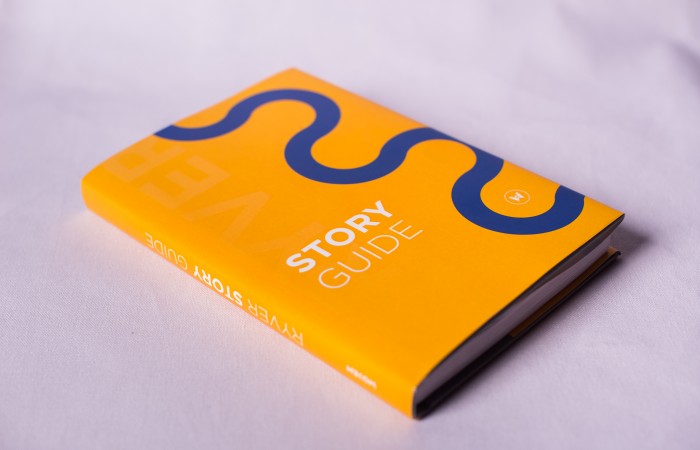
The Story of How Good Companies Become Great
By Dan McDonough, Jr.
“There’s something deeply human about storytelling: it’s part of how we learn language as babies, and it’s part of how we come to understand our world as adults.”
-Nicholas Thompson, Editor, NewYorker.com
The stories we tell make us who we are — not just as individuals, but also collectively as a society. Stories have functioned as the earliest and most meaningful form of communication and understanding for humanity’s entire existence. They’ve been used to grow powerful religious movements with billions of adherents. They’ve allowed political paradigms to ignite the critical mass needed to change the world — for better, or worse. They’ve helped Apple Inc. sell billions of iPhones, and they’ve allowed the fruit industry to sell even more apples to those of us who want to keep the doctor away.
Stories make us who we are. More importantly, they shape how we behave and interact. It is no wonder that the right story, levered correctly, can mean the difference between an organization that simply survives and one that truly thrives.
“Storytelling can be awkward and unfamiliar to many professionals, particularly if you’re sharing personal experiences. Yet the motivation for this storytelling is not self-aggrandizement, but to create a purpose and culture that others can share,” explains author John Coleman. “Purpose is what builds real passion, motivation, and buy-in for the stakeholders of any organization. And it can be articulated by leaders who’ve learned to tell their stories and the stories of the organizations, people, and causes they serve.”
The “right story” follows the millennia-tested, mythical framework of the hero’s journey: You are the mentor, helping your prospects achieve their critical goals with the gift of your product or service. Making your prospects the hero of the brand story empowers them, and encourages them to repeat it far and wide. At Woden, we distill our clients’ stories into what we call the StoryKernel™. Powerful StoryKernels are not about how great you are, but, rather, how great your potential clients could be — with your product.
This StoryKernel is the basis for all messaging related to your business. It is used for developing marketing materials, for website content, to share with marketing partners as a foundation for their efforts, or even to frame and hang on the wall of your offices to remind your team why they come to work each day.
“Storytelling is at the cornerstone of everything we do: raising money, hiring, press,” explains Chris Sacca of Lowercase Capital. An investor in Twitter, Instagram, Uber, and Kickstarter, among others, Sacca would know. He’s also quick to point out that storytelling in the business world is best done when it gives a glimpse into what’s next. “What sets apart great founders — they don’t use conditional language.” The founders in which Sacca has invested use future language when they talk about their business.
Levering a story correctly requires a willingness and diligence to inject your unique narrative into all aspects of an organization. We help our clients achieve this with what we call StoryGuide™ — literally a book that outlines the strategy for making your story the mortar of your organization. It explains how to leverage the StoryKernel in all aspects of an organization — not just marketing. It creates a guide for a holistic and complete approach in harnessing storytelling to do what it was designed to do: Move people.
“We know that people are substantially more motivated by their organization’s transcendent purpose (how it improves lives) than by its transactional purpose (how it sells goods and services),” explains story researcher Paul J. Zak in Harvard Business Review. “Transcendent purpose is effectively communicated through stories — for example, by describing the pitiable situations of actual, named customers and how their problems were solved by your efforts.”
Zak’s research tells us that if a story can make people empathize with the pain the customer experienced, they also will be able to feel the pleasure of its resolution. The best way to orchestrate that experience is to use some level of heroics to reduce suffering or struggle, or to produce joy.
In laboratory tests, Zak’s research clearly shows the best way to win over our minds: using enduring stories with a dramatic arc in which a “character struggles and eventually finds previously unknown abilities and uses these to triumph over adversity.”
Success with story in your business comes when you can use it to give your products a personality and create a transformative organization ready to unlock its full potential.
Dan McDonough is a founding partner at Woden. Whatever your storytelling needs may be, let Woden help. Download our free StoryGuide, or send us an email atconnect@wodenworks.com to discuss how we can help tell your story.


